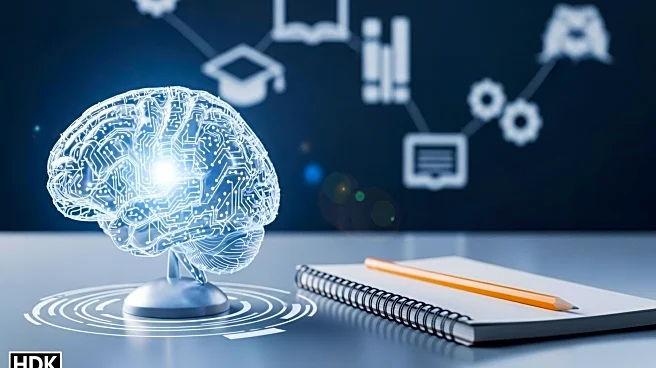What's Happening?
A recent study has found that AI-simulated students outperform real students in math and reading comprehension, but make different types of mistakes. The study tested 11 large language models (LLMs) on grade-level questions from the National Assessment of Educational Progress, comparing their answers to those of real students. The findings suggest that AI models, while useful for generating educational content, may not accurately reflect real student learning processes. This poses challenges for teachers who use AI tools for instructional tasks, as the models may not align with actual student needs.
Why It's Important?
The study highlights the potential and limitations of using AI in education. While AI tools can save time and provide valuable resources, educators must exercise caution and professional judgment to ensure these tools meet student needs. The findings emphasize the need for training teachers to understand AI's capabilities and limitations, ensuring that AI outputs are effectively integrated into teaching strategies. This is crucial for maintaining educational quality and addressing individual student learning challenges.










